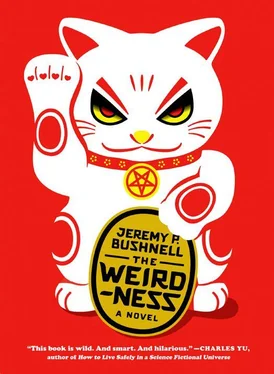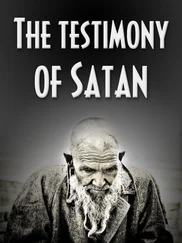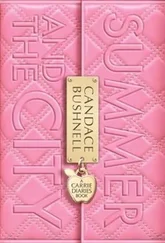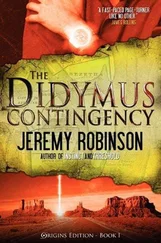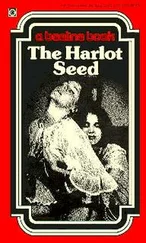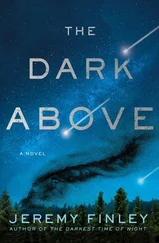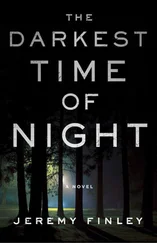“I am present!” Billy exclaims, seizing the opening. He raps on his chest with his knuckles, to demonstrate. “Immanent,” he says.
Denver gives him a sad smile. “Immanent,” she says. “Sure. But I need someone who’s going to be present. For real present, not just immanent. I’ve just — I’ve learned that, about myself, by now. Guys who can’t be present? They’re often funny, clever, talented guys, Billy — but they’re no good for me. And I’m trying — I’m really trying not to like guys who are no good for me.”
“But,” Billy says.
“But what.”
“But I want you to like me.”
“I know,” she says. “And it kills me. It kills me that you want me and it kills me that I want you back. And it kills me that I’m here, overlooking the fact that you’re probably bad for me, even though I swore — swore! — to myself that I was done with you. And it kills me that”—she looks inadvertently over to the bar, in the direction Elisa went—“that you’re already looking for the Next Thing. That you weren’t even present enough in our relationship to be sad when you thought I was gone.”
“I was sad,” Billy says, miserably. “Really fucking sad.”
“Well,” Denver says, with a note of bitterness, “then maybe there’s hope.”
Billy remembers an old joke out of Kafka: There is hope. Plenty of hope. An infinitude of hope. But not for us .
And that’s when Anil and the Ghoul show up.
“Billy Ridgeway, man of the hour,” says Anil, clapping Billy on the back.
“Explain to me why you don’t have a drink in your hand right now,” says the Ghoul.
“Hey, guys,” Billy says.
“Hey, Denver,” Anil says. He looks back and forth between Billy and Denver, evidently trying to assess the state of the dynamic. “Um, am I interrupting?”
“No, it’s okay,” Billy says. “Pull up some chairs.” There will be time — he hopes — to continue this conversation with Denver later. There are times when privacy is crucial, and, yes, being in the middle of a tense conversation with an estranged loved one is usually an indicator that you’re experiencing one of those times, but Billy really believes that if you’re about to get up on stage you shouldn’t turn away even a single friend who wants to be by your side. He glances at Denver to see if she’s okay with it. Her face bears a practiced blankness, but he catches sight of something un-consoled floating into the depths of her head, where he cannot reach it.
Shit , he thinks.
Everybody looks at one another, deep in their respective bubbles of social calculation, trying to figure out what to say next.
“I am buying you a drink,” the Ghoul says, and he slouches off into the darkness.
“So,” Billy says to Anil, eager to get a conversation — any conversation — off the ground. “You just get off work?”
“Yeah,” Anil says. “And let me tell you. That place.” And he’s off, telling a story about the latest wackiness to go down at the sandwich shop, Giorgos getting into it with some customer. Denver listens, cracks a fake smile — to front like she’s okay, Billy intuits — and then eventually Anil’s patter wins her over, and a real smile replaces the fake one. It’s the first real smile Billy’s seen on her in a long time. He’s glad to see it, even if it breaks his heart a little to know that he wasn’t the one to pull it out of her. She ends up telling a story, too, about the baroque anthrax paranoias held by one of her old bosses, the guy who supervised her in the hospital mailroom when she was employed there as a glorified letter-opener, in those days right after 9/11, when everything had seemed so fucked.
The Ghoul returns, putting a pint of ale in Billy’s hand, and in turn tells a story about one of his old bosses. Denver throws her head back and laughs her loveliest laugh and the reaction even gets a rare, thin smile out of the Ghoul. And for a blissfully unbroken stretch of time — maybe fifteen minutes — Billy feels like his life is normal, like everything is going to be okay.
And then Billy’s phone starts vibrating. He pulls it out of his pocket and sees that it’s his dad again. What is this, three times in as many days? A troubled expression clouds Billy’s face. The others, still clowning with one another, don’t notice. Something could really be wrong. It occurs to him, with a dollop of alarm, that he still hasn’t listened to either of the previous voice mails his father left. He imagines taking the call, screwing a finger in his ear so he could hear his dad over the dull clamor of bar noise; he imagines getting up, taking the phone outside, having a conversation on the curb. Either way he knows that it would pull him out of the pleasurable little pocket-universe that he’s been enjoying. He likes it in here, in the world where it seems like everything is going to be okay, where there are no family emergencies to worry about. But he makes a promise to himself to listen to the voice mails on the way home after the reading. Or if he’s too drunk, or it’s too late, or if he needs that time to sort things out with Denver, then he’ll listen to the messages in the morning, before he has to drag his ass off to work. Any emergency can wait until then. He feels certain of it.
He’s trying to get back into the rhythm of the conversation when they’re joined by Laurent, the editor in chief of The Ingot , the guy who organized the reading. Laurent is a pale Glaswegian whose freckles and curly sprawl of red hair make it difficult for Billy to imagine him as any older than fifteen. He swims within a massive, cable-knit roll-neck sweater which provides probably half of his mass.
“Glad you could make it; glad you could make it,” he says, pumping Billy’s hand with enthusiasm.
“Oh, sure,” says Billy. He still hasn’t come up with a story to tell, and the realization that he still has to triggers a sudden unpleasant tightening in his scrotum. “I … wouldn’t have missed it.”
“Wonderful. Listen, I think we’re going to get started in about five minutes. We’re going to have you go first, then a short break, and then we’ll have Elisa go.”
“Okay,” Billy says, falsely. A thin line of sweat breaks out on his forehead. “Great.”
Laurent claps Billy on both shoulders. “It’s good to have you here. On board.”
Billy forces a smile, and waits for Laurent to remove his hands. The moment lasts a little longer than it should, and Laurent’s face turns somber.
“I wanted to apologize,” he says. “About the — the thing.”
“The thing?” Billy says.
“You know,” Laurent says. “The unpleasantness.”
“The Bladed—”
“Yes. Don’t even say it. I can’t even stand the name of the thing.”
“Don’t worry about it. It doesn’t matter,” Billy lies. “It’s just one write-up; it doesn’t define the evening. It seems like we got a good crowd anyway.”
“True, true,” says Laurent. His hands are still on Billy’s shoulders. “It’s just— Thanks for the invite , Ingot, but we find ourselves in a position where we must decline . It’s galling.”
“Whatever,” says Billy, eager to end this. “I wouldn’t really have wanted him here anyway. If he steers clear then so be it.”
“Well, that’s the thing,” says Laurent. “He didn’t steer clear. That’s him, right over there.”
He releases Billy’s shoulders at last and points. Everyone’s eyes follow. Sure enough, standing alone, with his back against the deep purple wall of the bar, a tall figure with a slate-gray shirt and a mandarin collar, idly reviewing items in a steno notebook. Billy looks at the bony face; the heavy brow; the thick, bookish eyeglasses made out of some kind of horn; the expression of faint boredom; and he thinks one word: enemy .
Читать дальше
